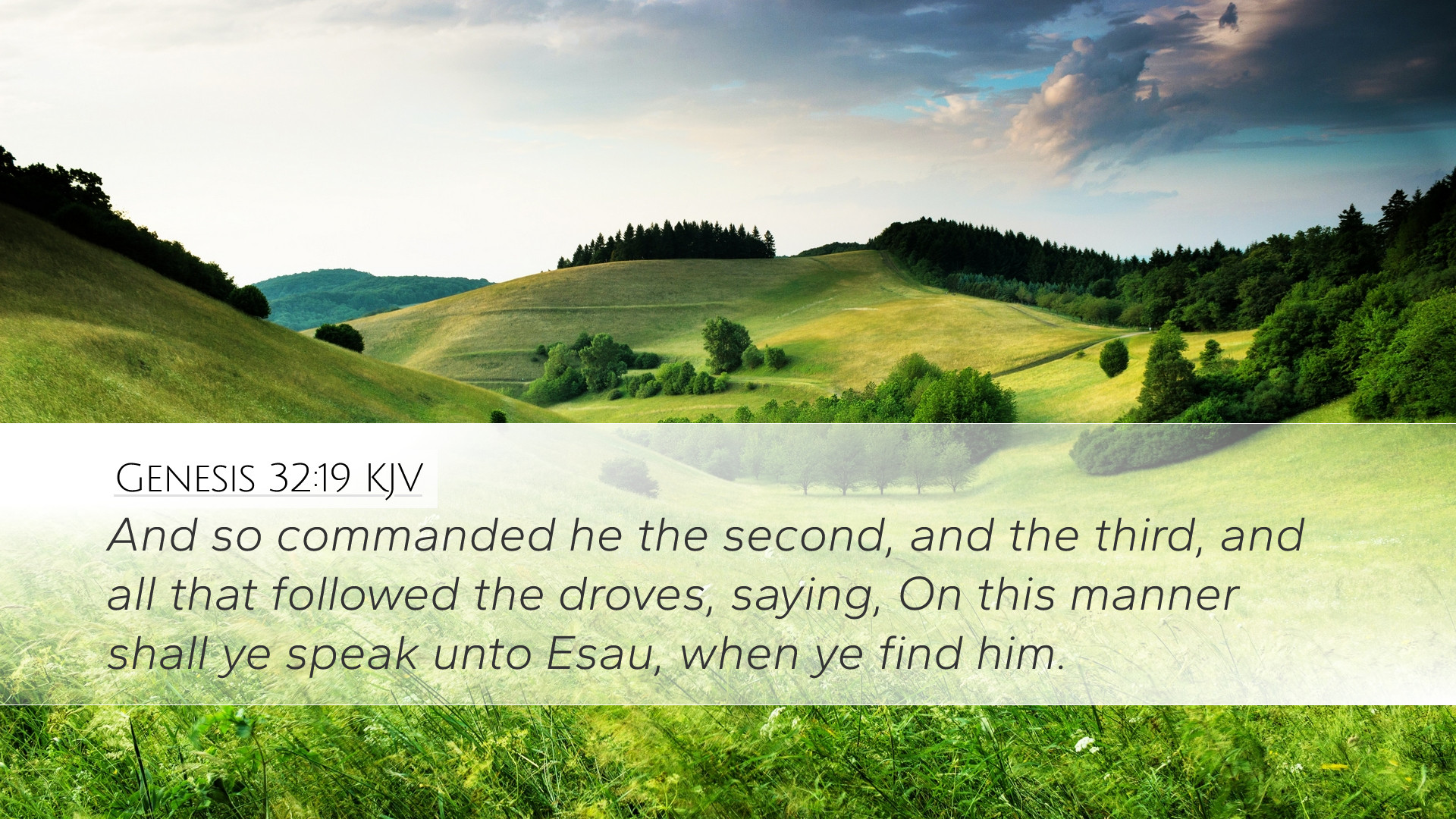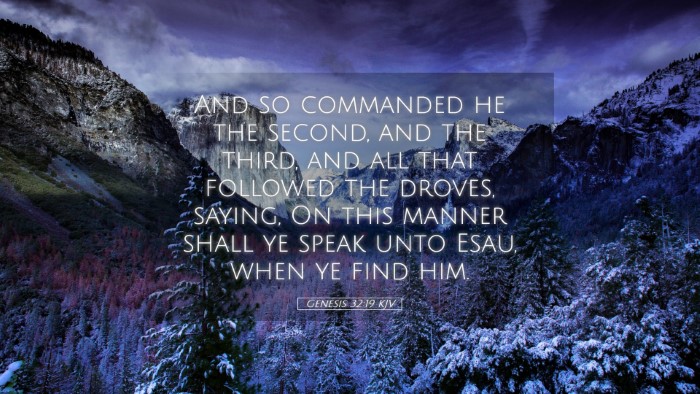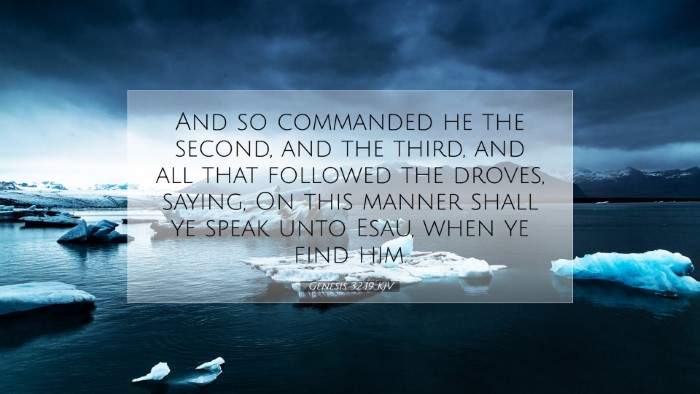Commentary on Genesis 32:19
Verse Context: Genesis 32:19 reads: “And he commanded the second, and the third, and all that followed the drove, saying, On this manner shall ye speak unto Esau, when ye find him.” This verse occurs during the night before Jacob's encounter with Esau, a moment filled with tension and anticipation.
Introduction to the Themes
This scripture represents a crucial turning point in Jacob's life, illustrating themes of reconciliation, fear, and the preparation of the heart. Throughout this commentary, we will draw from the insights of public domain commentators such as Matthew Henry, Albert Barnes, and Adam Clarke to delve into these themes.
Exegesis of Genesis 32:19
The Preparations of Jacob
Jacob, having received news about Esau's approach with 400 men, exhibits a deep sense of anxiety and responsibility. Matthew Henry notes that Jacob’s strategic preparations reflect his understanding of both the potential for conflict and the need for peaceful resolution. His command to the servants showcases Jacob's organizational abilities as well as his desire for reconciliation.
The Significance of Communication
The way Jacob instructs his servants serves as an essential lesson in communication. Albert Barnes emphasizes that Jacob carefully crafted a message intended to soften Esau’s heart. This attention to how he would convey his message indicates spiritual maturity and a shift from his earlier self-serving actions that had led to conflict with Esau in the past.
Fear and Vulnerability
Adam Clarke highlights the emotional undertone of this passage. Jacob's fear is palpable; he grapples with the implications of his past actions against Esau and the very real possibility of retaliation. This moment reflects a universal human experience of vulnerability when facing the consequences of our past, making Jacob a relatable figure even today.
Theological Insights
God’s Providence
As Jacob prepares to meet Esau, it is essential to consider God’s overarching providence in his life. Matthew Henry beautifully notes that even amidst Jacob's fear, God's prior assurances regarding his journey and return grapple with Jacob's fear. The transformative nature of this encounter highlights a key theological truth: God often uses our fears to refine us and deepen our reliance on Him.
The Nature of Reconciliation
Reconciliation is a dominant theme in this passage. Barnes notes that Jacob's approach demonstrates a model for seeking peace. His proactive steps, including generous offerings, illustrate the importance of humility in repair relationships. In this light, Jacob’s journey can teach pastors and theologians how to approach conflict with a heart aimed at peace.
Practical Applications
The implications of this verse can be profound for congregational life and personal relationships:
- Preparation for Conflict: Like Jacob, individuals should be intentional in their preparations when addressing past conflicts.
- Crafting Communication: The care with which Jacob communicates with Esau serves as a reminder of the importance of our words in moments of tension.
- Embracing Vulnerability: Acknowledging one’s fears and vulnerabilities can be a pathway to genuine humility and deeper relationships.
Conclusion
Genesis 32:19 encapsulates a moment in Jacob's life that blends fear, strategic thinking, and the pursuit of reconciliation. By reflecting on the insights found in the works of Henry, Barnes, and Clarke, one can engage more thoughtfully with this text. It serves as a poignant reminder for all—whether scholars, pastors, or seekers—of the enduring relevance of scripture in guiding us through the complexities of human relationships and our own spiritual journeys.


